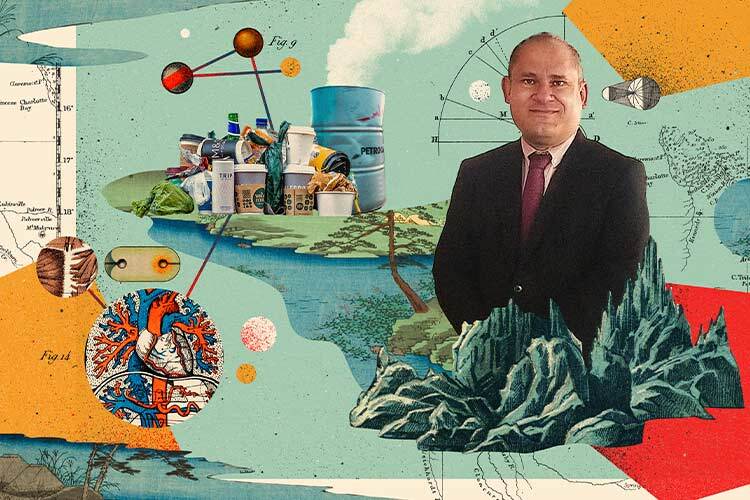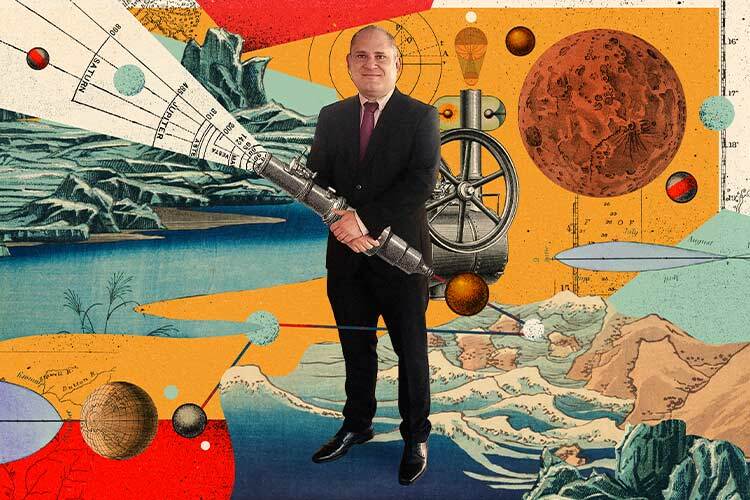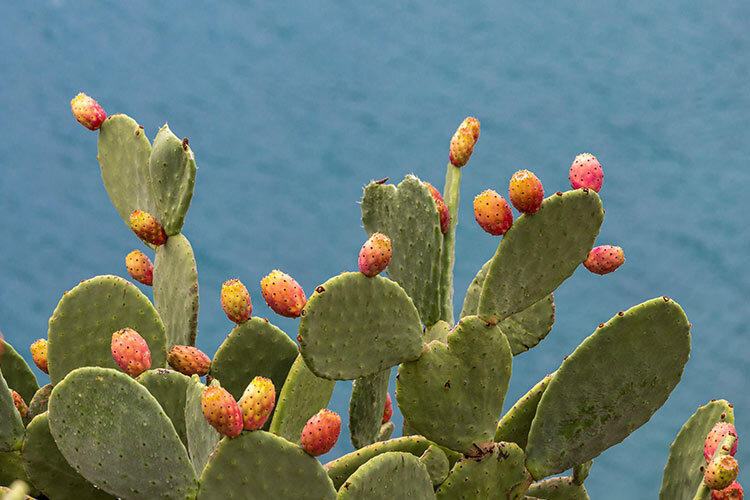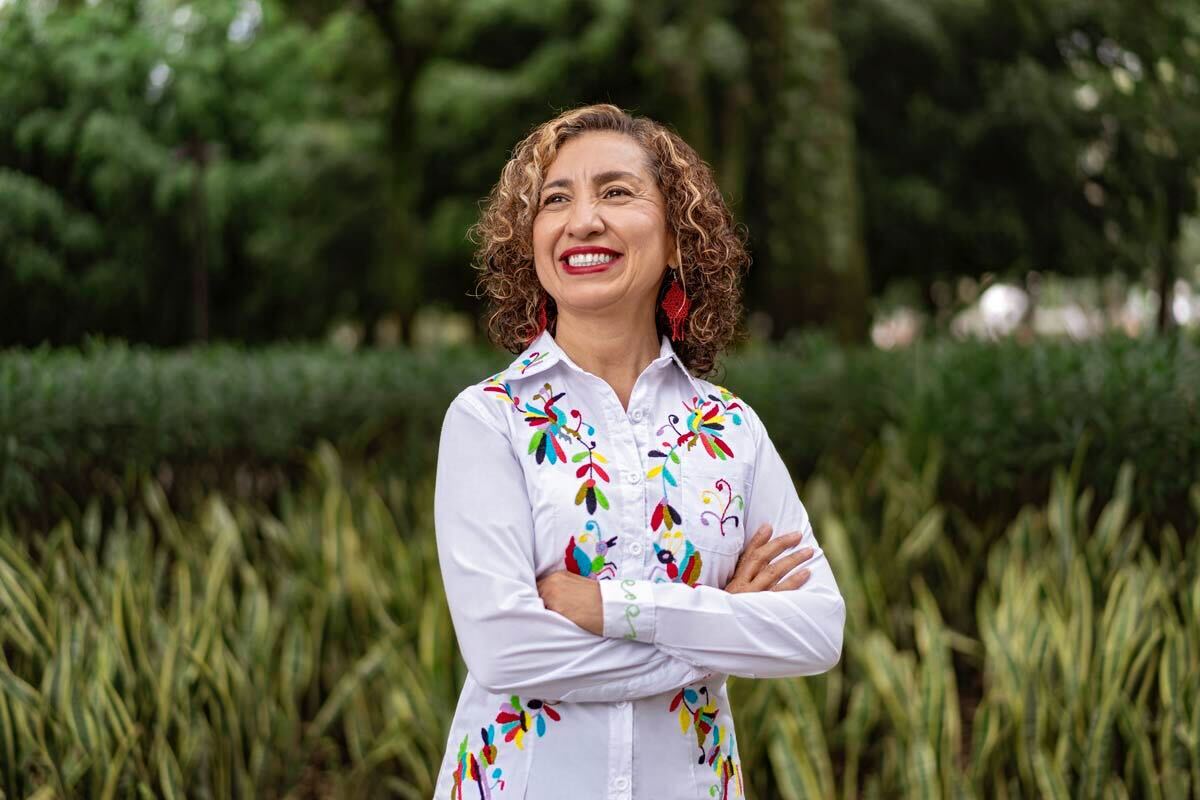One day, at the University of Loja in Ecuador, Abrahan Mora came across a job listing that seemed to fit his qualifications perfectly. Within less than a year, he found himself in Mexico with a new job and a new home.
Mora, now a professor and researcher at Tec de Monterrey specializing in water pollution, has always had a strong inclination for studying the environment directly in the environment itself, or as it is commonly referred to in science, “in the field“.
He never envisioned himself working in an office, a company, or even a lab. So, he decided to study chemistry, which allowed him to spend time outdoors.
He soon discovered that scientific work involves a combination of fieldwork, lab work, and writing scientific articles, but for him, fieldwork is always the foundation.
“I believe it’s very important because, often, when writing a paper about a phenomenon, you can’t do it well if you don’t know what the field is like. Really, being in the field changes a person, changes their perspective on the phenomenon. It allows for a better analysis of the situation,” he explains.
After earning a degree in Chemistry in Caracas, Venezuela, his home country, he pursued a PhD in Environmental Sciences in Madrid, Spain.
He returned to Venezuela, where he experienced “the joy of working between the field, the lab, and writing research articles for over eight years.”
However, the economic situation in his country led him to migrate first to Ecuador and then to Mexico. He is currently a research professor at the Puebla campus, focusing on detecting contaminants in bodies of water.
In an interview with TecScience, Abrahan talked about his love for fieldwork, its importance in science, how he arrived in Mexico, and what it means to live and work here.
Making the Most of a Crisis
Abrahan’s journey to Mexico began in Venezuela, where he was driven by the economic crisis that started in 2013. “Everyone knows the situation in Venezuela. In less than a year, due to inflation, my salary went from—let’s say—$2,000 a month to $40. It was practically unlivable.”
This led him to seek work outside his country. He spent a year as a researcher in Ecuador, and just before his contract ended, he came across ResearchGate, where scientific job listings are posted, among other things. He found that the Water Center at Tec de Monterrey was looking for someone with his exact qualifications. “It was the ideal job for me,” he said.
He applied, and after a few months and several calls, he and his suitcases arrived in Mexico.
What did you think when you arrived in Mexico?
I was impressed. I didn’t expect Monterrey to be such a modern city; I was also very impressed with Tec because I didn’t know it was so large. It’s an institution that is very well organized and structured. You can tell they know what they’re doing.
In Mexico, I found a genuine interest in research that I hadn’t seen in other South American countries except Brazil. Mexico is committed to research, for example, with incentives like those from the National System of Researchers. This is very important to me as it genuinely encourages quality research.
Besides work, what do you like about Mexico?
The food in the central part of the country is out of this world; I love it. Mexico’s diversity of environments is impressive: jungles, deserts, and mountains with glaciers. For environmental chemists like me, there are plenty of places to work.
The downside is the pollution. Mexico has the most polluted environment I’ve ever seen.

Research and Love for Fieldwork
What does your research involve?
I evaluate the behavior or evolution of contaminants in water systems, such as how they degrade or how their concentrations decrease and how this is related to other factors.
One of our most successful cases was working with nitrates. Thanks to this work, we won the Rómulo Garza Prize in 2023. We used models to evaluate the sources of nitrates that cause water contamination so that we could devise management plans to minimize this contamination.
We’re also studying arsenic, which is very common in the groundwater of the northern part of the country because the rocks contain arsenic.
What excites you most about your work?
I love fieldwork. We go out, take samples, conduct experiments, observe the landscape, and make associations—for instance, if a material layer affects the sample or the aquifer. All these are essential things to see. Another thing I love about my work is writing articles. If you do research and don’t publish articles, it’s as if you’re not researching because you’re not sharing that knowledge with society or the scientific community.
That’s what drives me. I think that’s what makes me happy.
Besides helping you understand what you study better, do you find any other value in going out into the field?
Many things. For example, you share a lot with the people you work with; they tell you what they like about the research and the problems. You get to know them better. It’s different from being in an office where everything is fast-paced. In the field, you can share and talk a lot. When it’s time to eat, maybe you eat at a little stand and have the chance to connect on a human level, to get to know people, which is very important to me.
Does this human connection contribute to the research?
It contributes significantly because you build trust, realize people’s potential, motivate them to do more, and encourage them to go further.
Mexico, a True Home
Do you miss anything from Venezuela?
In the first years, I missed many things, like my family, my friends, and, of course, the food. But, over time, you miss something that no longer exists; it’s something you remember. I visited Venezuela several times, and what I missed was no longer there. Missing is remembering things from the past with nostalgia.
In Mexico, I have my partner and my children. I love Mexican food—mole, pipián, pozole.
Do you consider Mexico your home?
Without a doubt. I have two Mexican children who already eat tacos.
Interested in this story? Want to publish it? Contact our content editor to learn more: marianaleonm@tec.mx

















